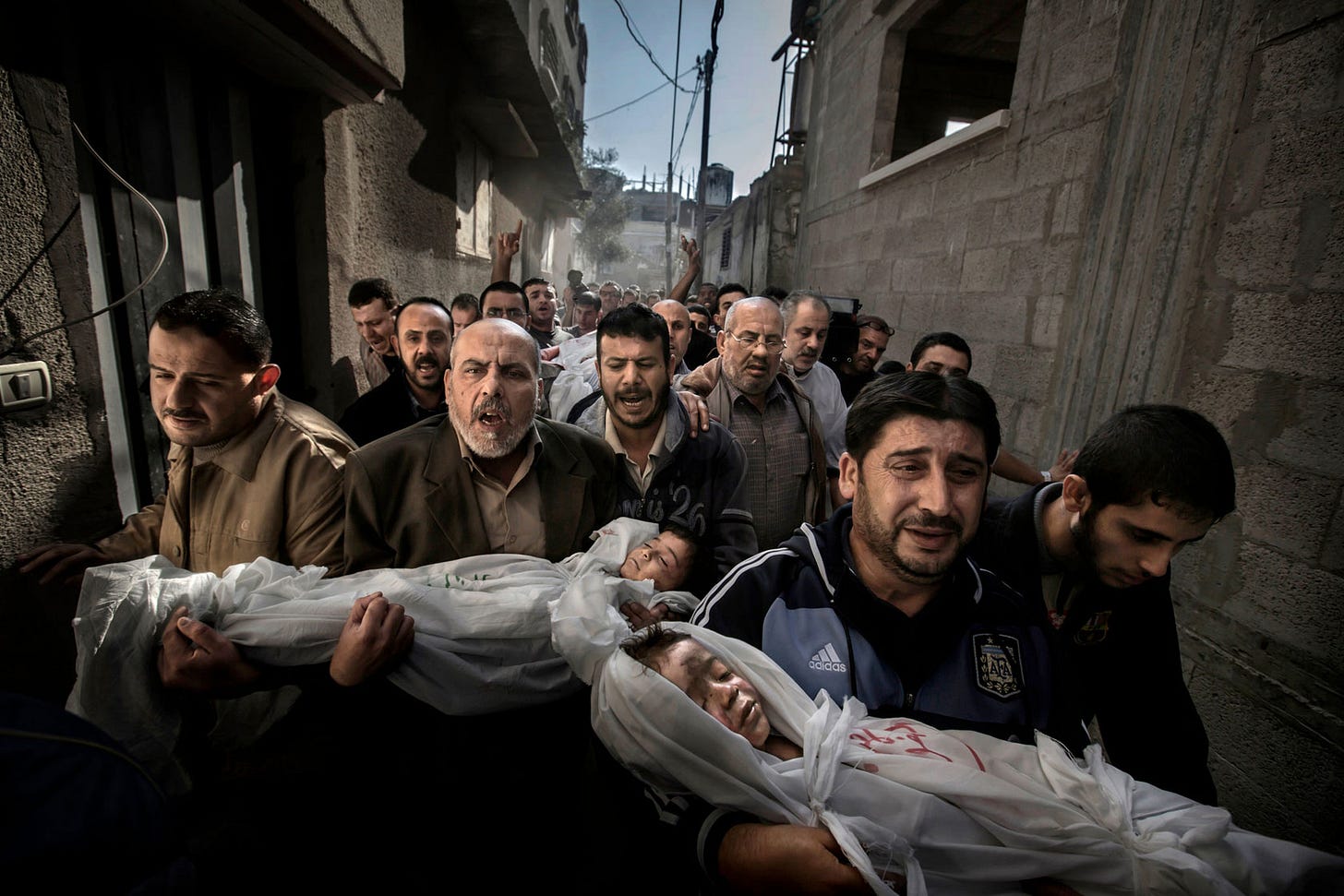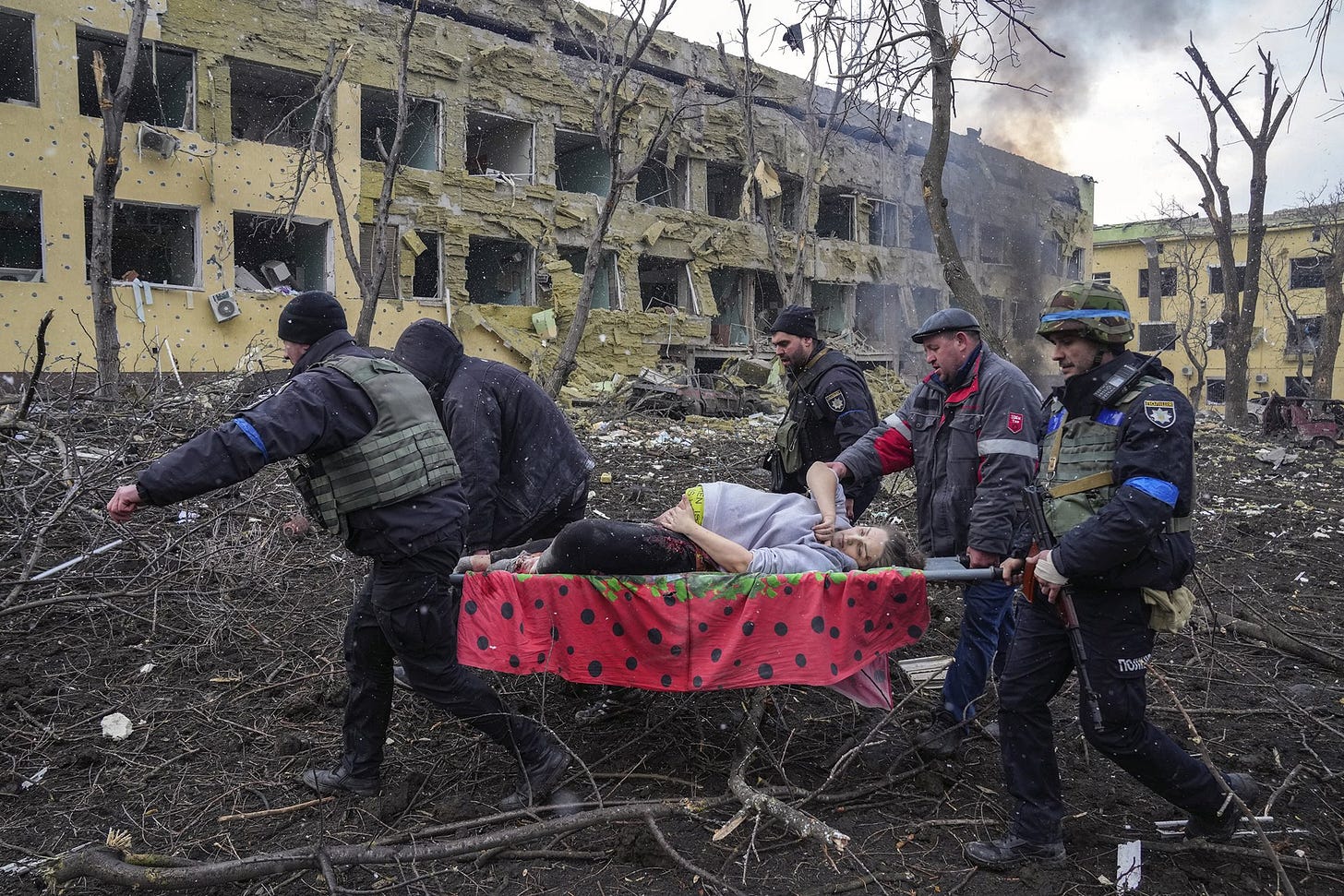The contradiction is glaring and persistent. According to its own mandate, the UN Security Council is entrusted with "the maintenance of international peace and security," yet, among the 193 member states, the economies of the council's five permanent members benefit most from the production and sale of weapons of war. How can the institution intended to prevent major global conflicts reconcile such an inherent contradiction within its structure? How can an entity built to combat despotic tyranny function when its core mission for peace is compromised from within? The simple visible truth is—it cannot, and does not.
I remember playing the “you get one wish” game when I was very young. Disney’s Aladdin had just come out. Even then, the answer “I wish for world peace” seemed naive, something you said to pander to adults who thought the answer was cute. Even at a tender age, I knew deep down that it was an impossible ideal because wars and major conflicts had already been described to me as ‘inevitable.’ Adults had already bumbled through explanations of ‘necessary conflict’ as something that just happens, usually trying to legitimize the actions of one side as the good guys engaged in the pursuit of some noble ideal—a more palatable answer to the ears of a child, and an easier position to adopt as an adult with seemingly well-formed notions of morality, truth and justice, right and wrong.
A ‘racket’
As videos and images of the devastation in Gaza and Israel pile on to those of the ongoing tragedies in Ukraine, Armenia, & Myanmar, the brutal visual imagery of war has become a sadly familiar narrative. Neighborhoods reduced to rubble, floors stained with blood, bodies marred by bullets, parents holding dead children, children collapsed over dead parents. The undeniable human toll of suffering, screams, tears, and anguish has become routine. It’s grotesque on its own, and almost inconceivably grotesque that people on this planet profit from this suffering.


Smedly Butler’s prescient assertion that “war is a racket” barely scratches the surface to describe the mechanism that incentivizes global conflict and death in exchange for vast fortunes accumulated and distributed amongst a small number of people.
War is a racket. It always has been. It is possibly the oldest, easily the most profitable, surely the most vicious. It is the only one international in scope. It is the only one in which the profits are reckoned in dollars and the losses in lives.
War Is a Racket, Smedly Butler, 1935
During the period spanning 2018 to 2022, the five permanent members of the UN Security Council—namely the US, Russia, France, China, and the UK—ranked among the top seven leading exporters of weapon systems. Put plainly, the very nations entrusted with maintaining global peace are actively contributing to its destabilization by flooding the world with weapons.
This paradox lies at the core of understanding why there are “forever wars” — why the United States and its allies spent 19 years in Afghanistan, 19 years in Vietnam, nearly 10 years “fighting ISIS” (still ongoing), and why the US as the self-proclaimed “police of the world” has spent approximately 230 out of its 248 years of existence at war. The responsibility for upholding world peace has been vested in nations whose economies depend significantly on warfare, and who benefit from the arms sales that global insecurity precipitates.

Annually, arms companies must sell weapons to sustain and increase profitability. As with any major corporation, they are under pressure to meet quarterly growth targets and exceed prior sales. The arms industry benefits financially from perpetuating a sense of insecurity, feeding off a government's anxiety or fear of threats, be they domestic or international. Like a parasite slowly infecting the host it feeds off of, the industry profits from nations feeling vulnerable, as those nations are more likely to increase arms purchases in the belief that they must defend themselves against potential rebellions or war. This profit-driven, fear-inducing mechanism starkly contradicts the very aim of fostering a secure and peaceful global environment—the very duty entrusted by the international community to the weapons-peddling nations that comprise the Security Council.
And soon… Killer robots!
Is escalation to the point of annihilation the only way forward?
Russia recently announced the development of weapons based on “new physical principles.” The US sold 49% more weapons in fiscal year 2022 than in 2021. China is reportedly bolstering its supply of nukes while it eyes Taiwan after witnessing Russia’s invasion of Ukraine.
On top of that, the weapons industry has been blocking efforts to create an international treaty that bans the use of “killer robots,” or autonomous weapons systems capable of engaging and killing human targets without human input. Despite years of calls to ratify an agreement, nothing has happened, and the development of these weapons systems has gone unfettered. According to the ICRC, “Despite various proposals put forward by states—including the development of international prohibitions and restrictions—the Group of Governmental Experts' conclusions do not reflect the seriousness of the issue and the urgent need for an international response. They neither acknowledge the specific challenges posed by autonomous weapons nor do they offer direction on effective measures to address them.” Autonomous homicidal robots represent a logical step forward in the race to develop the most effective weapons of war—at what point will humanity consider that the push for better killing machines is getting out of hand?
The institutions and structures our predecessors put in place to safeguard our species are inadequate in imposing regulations and restraints on industries that actively contribute to human suffering and death. It’s true for the weapons industry as it is for the oil industry, major pharmaceuticals, agribusiness, and big tech. The future of our species and our planet depends on our ability to reign in the excesses and mad desires of these mastodons, or swathes of humanity will witness the nightmare that perfected killing machines and growth-at-all-costs will unleash.
Is it all inevitable?
Smedly Butler provided solutions to limit the military-industrial complex:
Making war unprofitable. The means for war should be "conscripted" before those who would fight the war.
Acts of war are to be decided by those who fight it, with a limited referendum to determine if the war is to be fought. Eligible to vote would be those who risk death on the front lines.
Limitation of militaries to self-defense. For the United States, the Navy can be limited, by law, to operating within 200 miles of the coastline, and the Army restricted to the territorial limits of the country, ensuring that war, if fought, can never be one of aggression.
Butler is hardly the only person to weigh up solutions to make war an undesirable option or to criticize the usurpation of democratic institutions by corporate military power.
Noam Chomsky isn’t afraid to point to some of the culprits who cheer for unfettered militarization. “With a monstrous military budget, we have to severely harm ourselves and endanger the world, wasting enormous resources that will be necessary if we’re going to deal with the severe existential crises we face. Meanwhile, we pour taxpayer funds into the pockets of the fossil fuel producers so that they can continue to destroy the world as quickly as possible. That’s what we’re witnessing with the vast expansion of both fossil fuel production and military expenditures. There are people who are happy about this. Go to the executive offices of Lockheed Martin, ExxonMobil, they’re ecstatic. It’s a bonanza for them. They’re even being given credit for it. Now, they’re being lauded for saving civilization by destroying the possibility for life on Earth. Forget the Global South. If you imagine some extraterrestrials, if they existed, they’d think we were all totally insane. And they’d be right.”
For journalist Chris Hedges, the self-immolation of the war-hungry nation is inherent in its design. “The war state harbors within it the seeds of its own destruction. It will cannibalize the nation until it collapses. Before then, it will lash out, like a blinded cyclops, seeking to restore its diminishing power through indiscriminate violence. The tragedy is not that the U.S. war state will self-destruct. The tragedy is that we will take down so many innocents with us.”
For peace to be possible, humanity needs to resist the jingoistic platitudes and carefully constructed narratives that accompany a nation at war. In the West, we’ve recently witnessed once again the simplistic good vs evil argument shouted from pulpits to justify support for Ukraine or Israel. It’s the same narrative that justified the illegal US invasion of Afghanistan in 2001, Iraq in 2003, and Libya in 2010. It’s the basic framework for the “otherization” of one group by another that attempts to justify the subjugation or destruction of the “other.” It has never been that simple, and it never will be. We must resist being drawn into supporting campaigns of destruction and death. We must demand that our governments reshape their relationships with corporations that act against the people’s and the planet’s interests. Most importantly, we must rethink our own dispositions for tolerating war and destruction and become better at deciphering the lies, false promises, hate, and greed that have led us here.
If you have never listened to Eisenhower’s famous farewell address warning about the ambitions of the armaments industry, here it is below.
We have been compelled to create a permanent armaments industry of vast proportions… This conjunction of an immense military establishment and a large arms industry is new in the American experience… Yet we must not fail to comprehend its grave implications… In the councils of government, we must guard against the acquisition of unwarranted influence, whether sought or unsought, by the military-industrial complex. The potential for the disastrous rise of misplaced power exists and will persist.
Thanks a lot for reading. The first few articles in this series are free. Lots of love.






